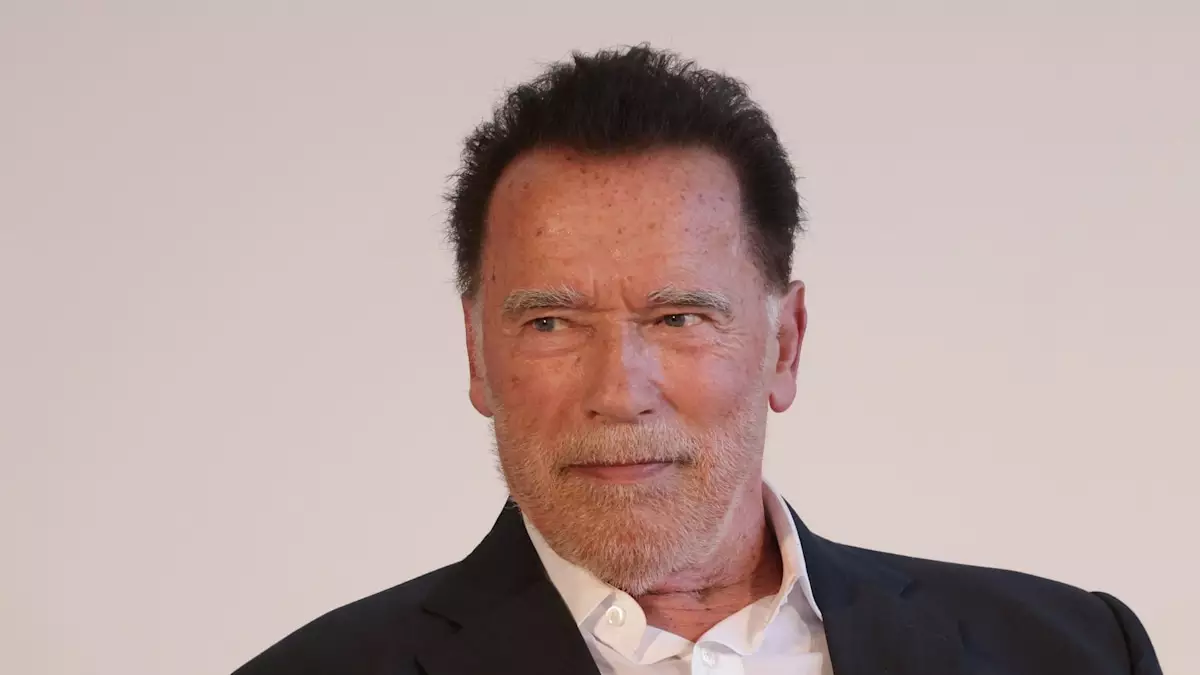In a significant political shift, Arnold Schwarzenegger, the former Republican Governor of California, has publicly endorsed Vice President Kamala Harris in the upcoming election scheduled for November 5. This endorsement is particularly striking given Schwarzenegger’s longstanding affiliation with the Republican Party, a connection he has chosen to temporarily set aside in favor of what he sees as a more pressing need for unity and a return to democratic ideals. His announcement, made via a detailed message on social media platform X, highlights his disillusionment with the current political environment while invoking a sense of urgency to address issues he perceives as undermining American democracy.
In his post, Schwarzenegger articulated a profound dissatisfaction with both major political parties. “I don’t like either party right now,” he confessed, emphasizing his disenchantment with political machinations that prioritize party loyalty over democratic integrity. His critique is layered; he does not shy away from stating that politics today appears more divisive than ever, a sentiment that resonates with many citizens who feel alienated by the highly contentious landscape. Arnold draws attention to the damaging consequences of election denialism, likening it to a betrayal of American values: “Rejecting the results of an election is as un-American as it gets.”
This sentiment reveals an underlying concern for the state of democratic principles in America, illustrating that for Schwarzenegger, the definition of patriotism transcends political affiliation. He positions himself as a concerned citizen first, highlighting that even a celebrity with his stature grapples with the growing chasms in political discourse.
Confronting Donald Trump’s Legacy
Schwarzenegger’s endorsement also includes a pointed critique of former President Donald Trump, whom he accuses of perpetuating division and resisting accountability. He condemns Trump’s role in the January 6 insurrection, calling it an alarming moment in American history that signals a profound threat to the democratic framework. Schwarzenegger’s language suggests a desire for closure on this troubling chapter, urging voters to look beyond Trump’s leadership style and towards a future that upholds democratic values.
Arnold’s comparison of the Capitol riots to Kristallnacht serves to amplify the gravity of the situation in his eyes. By invoking such a historical parallel, he underscores the potential for individual actions and rhetoric to incite broader violence and discord. This rhetorical strategy not only illuminates his fears but also galvanizes readers to consider the long-term consequences of current political behaviors.
What stands out in Schwarzenegger’s discourse is his insistence on collective responsibility in shaping the future of the nation. By endorsing Harris, he positions her alongside Minnesota Governor Tim Walz not merely as political figures but as hopeful stewards for healing and progress. He suggests that despite their own flawed narratives and platforms, aligning with them represents a necessary step toward reclaiming a sense of normalcy in governance.
Moreover, Arnold emphasizes the importance of participation in the democratic process. “Vote this week, turn the page,” he implores, presenting electoral participation as an antidote to political malaise. The message is clear: regardless of personal beliefs or affiliations, fulfilling one’s civic duty is paramount in steering the nation back on course.
Arnold Schwarzenegger’s endorsement of Kamala Harris resonates as a poignant reminder that political affiliations are not static and that the quest for a better future often requires bold decisions and uncomfortable conversations. His journey from Republican politician to an advocate for a Democrat highlights an evolving landscape where traditional boundaries are increasingly blurred in pursuit of unity and democratic integrity.
As the election approaches, Arnold’s words reflect a broader sentiment of frustration with the current political climate while simultaneously calling for an engaged and responsive citizenry. It is a testament to the power of celebrity influence when wielded thoughtfully and serves as a reminder that, ultimately, democratic ideals should transcend political party lines.
